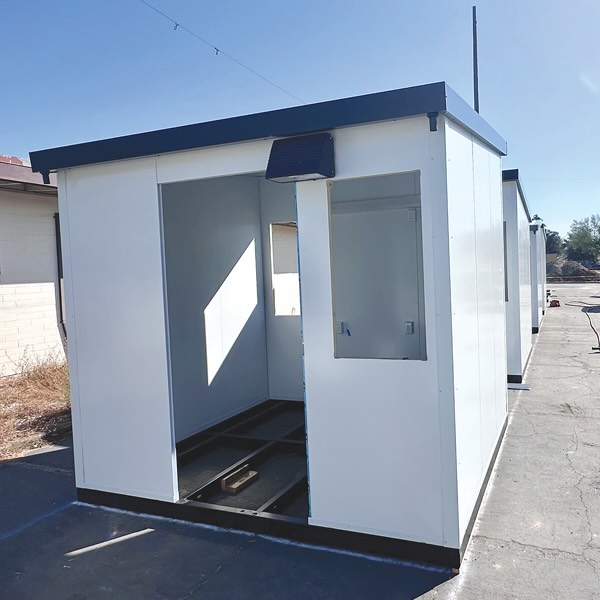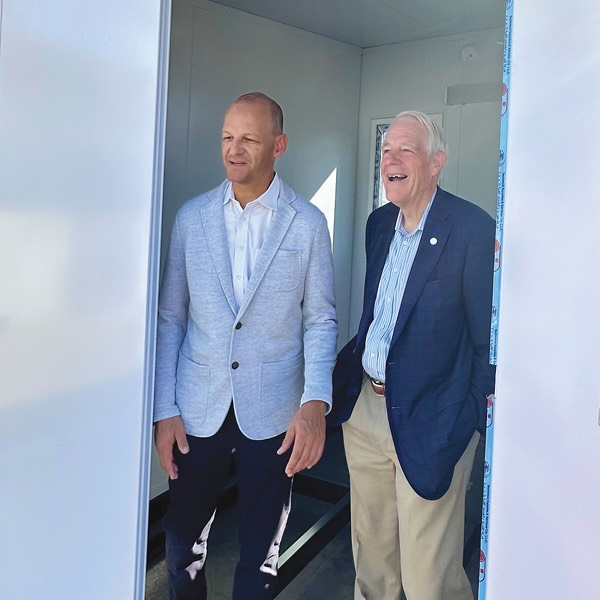Homelessness continues to escalate with 187,000 people living on California streets or in shelters in January 2024, a 55% surge since 2016.
Despite $24 billion spent from 2019 to 2023, the state accounts for 24% of U.S. homeless and 45% of unsheltered individuals, far exceeding its 11.6% population share.
Within this crisis sits Sacramento. Dangerous encampments, junk-filled streets, violence and public drug use are daily experiences for people living in desperation.



Golden Together is a California political movement founded by conservative commentator Steve Hilton. The organization’s January 2025 report, “Ending Homelessness,” authored by Edward Ring, blames ideological policies such as Housing First. Golden Together proposes bold reforms to achieve zero street homelessness. Hilton is running for governor in 2026.
Housing First dates from 19th century Europe. It prioritizes permanent, unconditional subsidized housing without requirements for sobriety or treatment. In the U.S., Congress mandated support for Housing First in 1999. California formalized the approach in 2016.
Unfortunately, Housing First has failed. A 14-year study shows 48% of participants died within five years. Only 36% remained housed. Housing First fuels dependency, isolates individuals and enriches the “homeless industrial complex” of nonprofits and developers who build units at $500,000 to $1 million each.
Lax enforcement makes things worse. Golden Together determined the 2018 Martin v. Boise ruling was misinterpreted by cities to ignore anti-camping laws. Misinterpretation enabled encampments to grow.
The report shows how cascading laws worsened the crisis. Propositions 47 and 57 (passed by voters in 2014 and 2016) downgraded crimes and expanded street populations.
The 1967 Lanterman-Petris-Short Act and Medicaid’s 16-bed limit hindered mental health care. Recent changes offer tools, but action lags. Proposition 36 (approved in 2024) upgrades punishment for repeat offenses. The U.S. Supreme Court overturned the Boise decision in 2024. Senate Bill 43 from 2023 expands conservatorships in California.
Golden Together urges repeal of Housing First and redirection of funds to low-cost “Recovery Shelters.” Tailored for addicts or families, these facilities require sobriety and counseling. They foster community support.
The report calls for enforcement of camping bans, reform of mental health laws and Medicaid waivers for larger facilities. Golden Together seeks audits of the “homeless industrial complex” to curb waste.
Also proposed are efforts to lower housing costs, reduce building and zoning regulations to increase housing stock, reduce childhood trauma and improve inmate rehabilitation.
The report concludes California can end this “third world” crisis with compassion and accountability. Golden Together urges political will to treat root causes of homelessness—addiction, illness, trauma. The group wants to reclaim public spaces, restore dignity and ensure no one sleeps on sidewalks or in doorways.
Reading the 36-page report, I realized almost all these problems and ideas were examined by our Inside writers over the last nine years. In 2016, I opened our coverage with my first column on the crisis, “Is Sacramento Dying?” The column was based on the Seattle documentary film, “Is Seattle Dying?”
Since then, our streets continued to decay with human misery. Ineffective efforts by local politicians made things worse, despite lavish and often wasteful spending.
On the state level, Gov. Gavin Newsom launched the State Action for Facilitation on Encampments Task Force, or SAFE. The program dismantles encampments on state property, beginning in the 10 largest cities, Sacramento included.
The taskforce hopes to unite state agencies specializing in emergency management, health care, social services, land management and public safety to support local governments in clearing encampments and connecting residents to shelter, treatment and care.
The initiative follows Newsom’s 2023 executive order directing encampment cleanups. The order comes after a U.S. Supreme Court ruling gave authorities approval to act. It’s part of a broader strategy to expand mental health treatment, update conservatorship laws and implement the CARE Court system for adults unable to look after themselves.
By combining shelter expansion, housing development and accountability for local governments, the SAFE Task Force aims to reduce homelessness and prevent new encampments. We can only hope state and local leaders have the political will to follow through and get results.
This summer, Mayor Kevin McCarty announced the construction of 135 tiny homes at the Roseville Road Shelter and Service Campus. It’s a cost-effective approach to homelessness.
McCarty says each tiny home costs about $15,000 to $20,000, in contrast to the $1 million per unit for permanent supportive housing.
The local initiative aligns with a city ordinance McCarty championed to ban homeless camping at City Hall. Last month, the mayor unveiled micro village sites at four locations across town.
McCarty tells me he follows our Inside Civic Dashboard to track important issues and unfinished projects. He calls the feature his “Mayoral To-Do List” and wants city leaders held accountable for results. That’s a refreshing change after eight years of the opposite attitude.
Cecily Hastings can be reached at publisher@insidepublications.com. Follow us on Facebook and Instagram: @insidesacramento.















